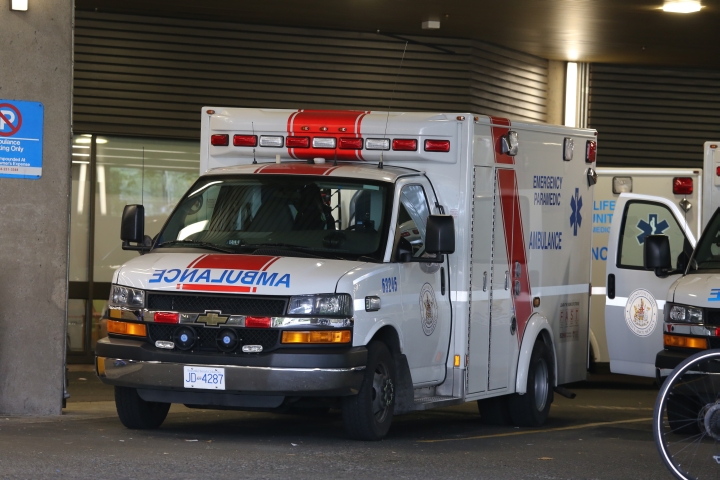Two Vancouver paramedics have been fired for encouraging a vulnerable patient to crawl to the exit of his Downtown Eastside building.

Last month a labour arbitrator upheld B.C. Emergency Health Services’ decision to fire paramedics Alyson Banner and Michael Crawford.
The paramedics responded to the Woodward’s building last October for a call of a man with a history of drug addiction who, according to a mental health worker on scene, “was screaming, moaning and in a considerable amount of pain.”

According to the ruling, Banner said a stretcher would not fit in the elevator and the 56-year-old man did not want to be touched.
Labour arbitrator Paul Love said that upon investigation a stretcher would have fit in the elevator.
Love goes on to say Banner “follows behind the patient and at one point keeps the patient’s head from hitting the side of the wall near the elevator.”
- ‘She gets to be 10’: Ontario child’s heart donated to girl the same age
- Bird flu risk to humans an ‘enormous concern,’ WHO says. Here’s what to know
- Buzz kill? Gen Z less interested in coffee than older Canadians, survey shows
- Canada updating sperm donor screening criteria for men who have sex with men
“As the patient comes close to the elevator, he scoots along on his buttocks into the elevator. The crawling and scooting takes just over a minute. The distance crawled and scooted was about 20 feet.”
Love said a second video showed the patient lying on the elevator floor at the feet of a police officer and the paramedics, who appear to ignore the man and talk among themselves.
According to the ruling, the patient was later diagnosed with sepsis, a potentially life-threatening condition that can lead to “delusional thinking, agitation and confusion.”
Troy Clifford, president of the Ambulance Paramedics of B.C. — CUPE 873, admits mistakes were made but disputes some of the findings, saying the paramedics did try to help the patient.

“One singular event that went unfortunately really badly for everybody and I don’t think it is reflective of our profession,” he said.
“Most paramedics would be discouraged by this because it doesn’t reflect what we do every day.”
The arbitrator said the patient abuse was serious and had a “demeaning effect” on a person from a marginalized community.
“It is difficult to imagine that this type of sub-standard patient care by a paramedic would be afforded to anyone out of the DTES,” Love wrote.
Clifford says the decision is under appeal to B.C.’s Labour Relations Board.





Comments